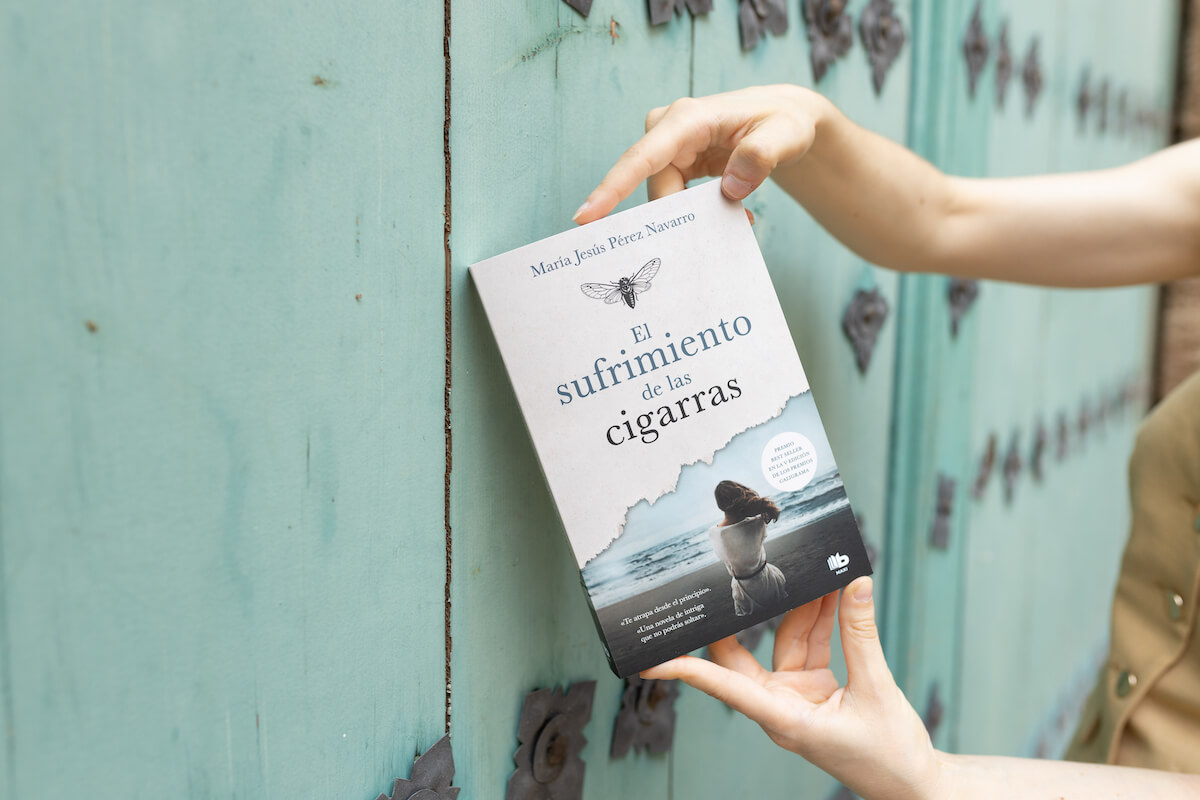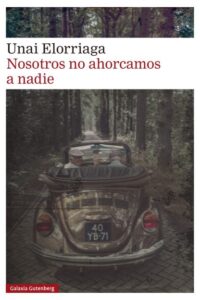
María Jesús Pérez Navarro, author of “The Suffering of Cicadas”: “The key is to enjoy and make the reader enjoy.”
She assures that being a writer is a lonely profession full of uncertainty, that you never know if the one you just published will be your last novel… But you also never know if it will be the first in a long era of successes. And María Jesús Pérez Navarro (Santomera, Murcia, 1987) always clings to that, full of optimism, also aware that being able to hook the reader is essential. His latest novel attests to his mastery of this, The suffering of cicadasa story with which he went from absolute anonymity to attracting the attention of none other than the publisher Penguin Random House.
How would you define yourself as a writer, María Jesús?
I think that as a person: hard-working, very organized and always wanting to improve myself.
And what led you to write? The suffering of cicadas?
Writing was always something that I had in mind since I was a child and, although I oriented my professional career in another direction (I studied Business Administration and Management), that idea always remained within me.
One morning, while I was at the university, what would be the first touches of The suffering of cicadas: a disappearance, a young woman who felt lost and the end, which in this case was clear to me from the beginning.
As soon as I had a bit of job stability and I began to have Saturday afternoons and Sundays free… I started writing, I didn’t know where I would end up, or even if I would be able to finish the story, but each week I made a little more progress in the story. history.
What do you intend to convey with The suffering of cicadas?
The underlying theme is suffering, especially the suffering of women. This makes it a simple and complex story at the same time: it is easy to read, since anyone can immerse themselves in its pages. But it is also complex, because it interweaves different plots, characters and personal conflicts.
I like to describe the story as a mixture of mystery, love and suffering; a novel that is created so that the reader immerses himself in its pages and cannot stop reading, all with suffering as a backdrop, that feeling that has accompanied most of us at some point in our lives.
Your novel went from self-publishing to attracting the attention of none other than Penguin Random House, what was that moment like? And what has it meant for your career?
I am aware that I have been very lucky, and I feel tremendously lucky for it. In April 2019, The suffering of cicadas won second prize in the I Certamen de Novelas Casino de Monóvar, at that moment I went from being a total unknown (very few people knew that I wrote) to getting a free edition in Caligrama, at that time the self-publishing label of the Penguin Random group House.
Added to this was the Best-Seller Caligrama award in July 2022, which has led to the reissue of the novel in B de Bolsillo and the leap of the novel from self-publishing to traditional publishing within the largest publishing group in the world.
I have lived these two awards and these two steps with great responsibility. I feel tremendously grateful, but also convinced that I would like to respond to this affection from publishers and readers with work. I owe it to all of them to try to give my best.
Along the way, you won two literary awards and reached 10,000 readers. It’s an impressive resume for someone who came from almost nothing, what do you think was the key to that success?
I always say that writing is a struggle, a hard struggle in all its stages. Starting to shape the story is complicated, getting published is complex, but when you get your novel on all the shelves and you think you have everything done…, you have to sell. And reaching new readers is also sometimes difficult.
I believe that the key to succeeding in each of these stages is to work and believe in yourself, to go through each of them without complexes. When writing, you never know the real value of what you have in your hands, but I think that if you have made an effort like never before and you have created it with enthusiasm, if you have put the reader above everything… I think that you have to defend it, take care of it. the work done and, with enthusiasm, make it known. Enjoy and make the reader enjoy, I think that is the key.
And now, at Penguin, how is your book doing?
This same week we started a new reprint of the novel as it was sold out on the different channels, so I am very happy, since the novel is being liked a lot and attracting new readers.
I am also very happy and grateful for all the work that Penguin Random House has done and is doing. Also for the trust they have placed in me.
Would you say there is anything you miss from when you were a lesser-known author?
I like that the novel makes its way and reaches new readers, so I really believe that it is fortunate to gradually emerge from anonymity. Furthermore, I really enjoy signatures and direct contact with the reader (talking about the novel with readers is something I love), so I really think that almost everything is an advantage.
If I had to say one thing, it is that work is now multiplying: we have to pay attention to social networks, e-mailsattending signings and presentations… In short, it is a little more difficult to focus only on writing.
Accounts that you usually do book signings in many parts of the national geography. What do you like most about the personal relationship with the reader?
I work so much that I’ve never had much time to travel. Since it was reissued The suffering of cicadas, my life has changed radically in that sense: I have signed in Seville, Córdoba, Madrid, Alicante… Between now and Christmas, Valencia, Albacete, Murcia, Cartagena are waiting for me… It’s crazy. But it is a very beautiful madness: it allows me to have a closer relationship with the readers and make the novel known.
The truth is that I really enjoy all these experiences.
What literary references do you have, María Jesús?
Reading is something very important in my life and I read absolutely all genres (and the truth is that I enjoy each of them).
In Spain we are lucky to have authors who stand out worldwide, I could start saying names and not stop, but I am going to mention two authors from whom I learn every time I immerse myself in their stories: María Dueñas and Dolores Redondo.
Outside our borders, I read everything published by Kate Morton (I love her novels), Ken Follett and Joël Dicker.
One of the things I like most about reading is everything we learn by immersing ourselves in the pages of a book.
The truth is that you set the bar quite high for yourself, is this a motivation for the future? Tell us a little about your upcoming projects.
It is undoubtedly a motivation but also, sometimes, you feel a certain pressure. Many years ago I read that when Penélope Cruz finished filming her first film (Ham Ham), sank, as I had the feeling that it was going to be the first and the last. At times I have felt identified with those words, because you never know what awaits you ahead, if you are at the beginning or the end of something.
Writing is a lonely profession full of uncertainty. But once you start, you’re hooked. It’s hard to stop the story that grows inside you. So I try to transform all that feeling into an opportunity to improve myself and continue moving forward. I am currently finishing my second novel, I have been working on it for almost four years and I hope to have it finished by the end of the year. There are many fears, but also a lot of excitement. Writing is that, a mixture of feelings. Hard and beautiful at the same time. What could be better than having the opportunity to create something that thousands of people can enjoy?
Source: https://algunoslibrosbuenos.com/maria-jesus-perez-navarro-autora-de-el-sufrimiento-de-las-cigarras


